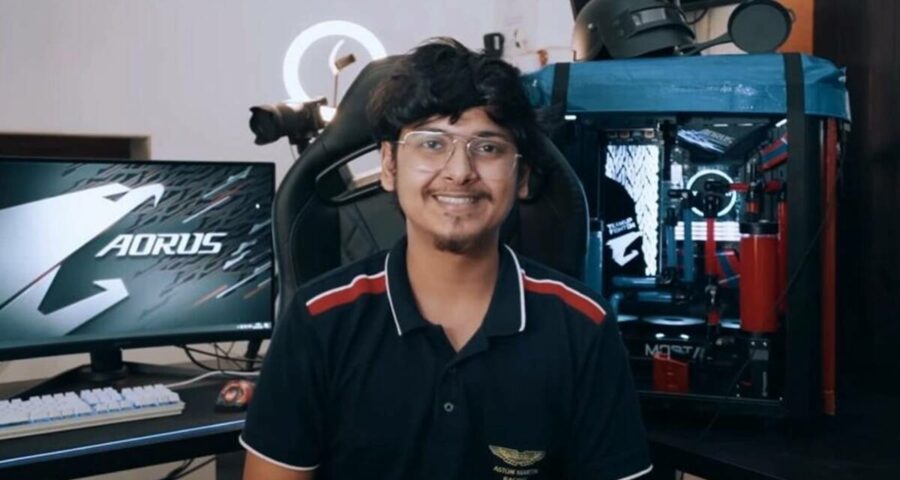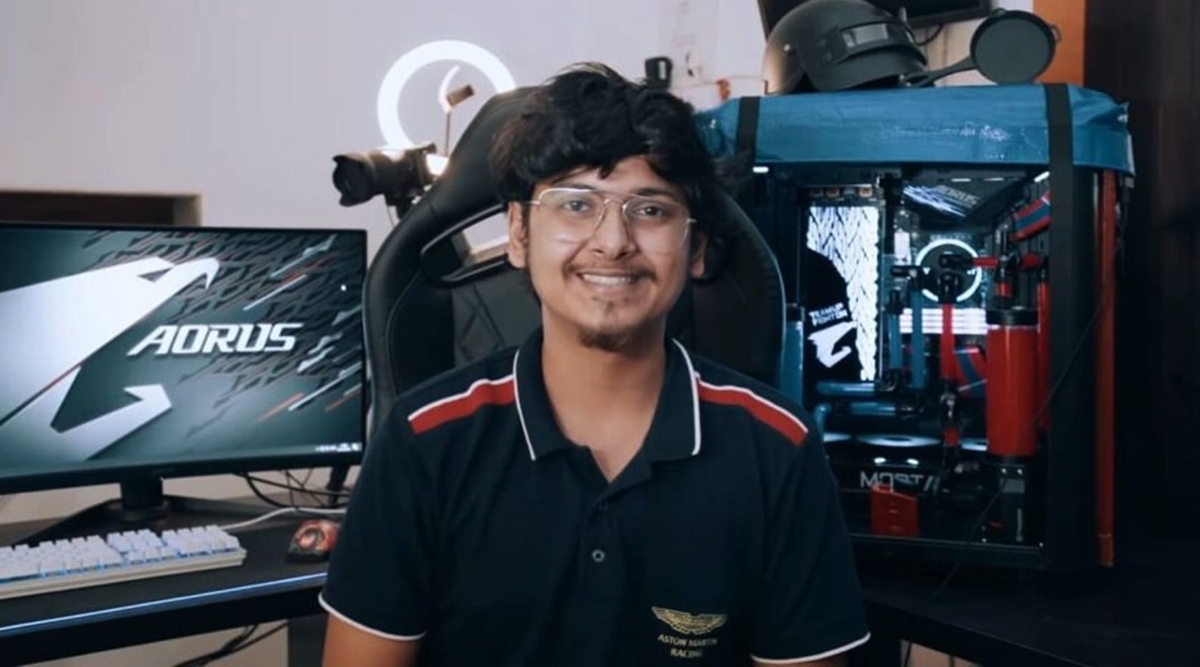The 24-year-old Mathur finished the year as third in the ‘Mobile Player of the Year 2020’ category at the E-sports Awards 2020 and among YouTube’s most successful live streamers of the year.
For Naman Mathur — India’s most recognisable gamer who has heard his moniker ‘Mortal’ ring out at the KD Jadhav Indoor Hall in New Delhi as well as arenas in Kuala Lumpur and Berlin — 2020 was a rollercoaster. The one-two punch of Covid-19 and the PUBG Mobile ban threatened to halt the momentum Indian esports has generated on the back of breakout stars.
Mathur spent the rest of the year shepherding his Team 8Bit’s transition to content creation, entertaining his six million YouTube subscribers by streaming a variety of games — from breakout hits ‘Fall Guys’ and ‘Among Us’, to other battle royale titles such as ‘Free Fire’ and ‘Call of Duty’. The numbers dwindled, a sign of the collective heartbreak of an audience bred on PUBG Mobile, but Mathur and his team persevered.
The 24-year-old finished the year as third in the ‘Mobile Player of the Year 2020’ category at the E-sports Awards 2020 and among YouTube’s most successful live streamers of the year. Mathur catches up with The Indian Express to talk about the challenges of 2020 and the pivot to content creation. Excerpts:
Last year was filled with ups and downs for you. What were the learnings from 2020?
We are happy about our consistency. Even though there was pandemic and the PUBG Mobile ban, we didn’t want to stop. We had our reasons to be sad and sit and stop everything, but we didn’t want to do that. Our lives depend on this as gaming, YouTube is our career. We have to find ways to survive in front of the audience and not just crib or fight something which isn’t possible.
As of now, you are a full-time streamer. Earlier, it was just PUBG but now you have ventured into different games. Your viewership has also responded by showing that they are ready to migrate to other games. In that sense, has the Indian gaming audience matured in the last year?
The viewership obviously went down but a new set of audience has come up. Many of the older ones are still there and they look at me now as a full-time streamer who is ready to explore.
Last time we spoke, you had just competed at the Indira Gandhi Indoor Stadium. Your face was on posters everywhere. Do you still look back at that and feel the itch for competition or have you moved on?
We were a lot more active when there was a competitive scenario. You are practising throughout the day, playing and competing. A lot of emotions and bad moments too, but with time it has faded away. The decision to quit competition and explore other games means it has also been very stress-free. With competition, there was of course a lot of stress (laughs). But when it comes back, I am not going to completely go back to being a competitive player but will be focusing on my team more. I haven’t left competition as such but I will be more as a fifth or sixth player, a mentor for my team.
When you say this is stress-free, I’m sure it doesn’t mean it’s as simple as switching on the stream and playing. There must have been some new challenges?
Competition was a lot of hard work. And that paid off. Right now, in content creation, working hard means a different thing. There is more ideation like how do I create content. But there is no competition because everybody is doing their own thing.
But there must be some challenges? One viewer who keeps asking about PUBG?
https://www.instagram.com/p/CHamMlVlE3f/
A post shared by Naman Mathur (@ig_mortal)
Yeah, there are. But I don’t consider this a challenge because there is nothing we can do for that person. (Viewership) numbers is the only challenge. Back then, there were numbers. Now, comparatively, there are no numbers. Many have adapted, and even if I get a watching of 10,000, it’s a huge thing for me.
After the PUBG ban, suddenly there were a lot of youngsters who were without the game which could’ve been a career path.
This is because we were all a lot into PUBG Mobile. Back when pandemic ka koi naamonishaan bhi nahi tha (there wasn’t even a trace of the pandemic), (Team 8Bit co-founder) Animesh (Agarwal) used to tell us ‘you guys should get into other games. Play more PC games. Apni audience ko thoda spread karo (spread your audience a little). Make them used to other games.’ Back then, because of competition and other things going on, we couldn’t. We realised the importance of not putting all our eggs in one basket later on.
I have done the grind in Call of Duty: Mobile. I have done the grind in FreeFire. I used to play Clash Royale. These are games people can look at as options. If they want to play tournaments and if they really want to win, there are options for them. But that raw bonding, that emotional connect with PUBG, vo nahi hoga (that won’t be there).
The news of the ban must have been a kick in the gut.
Absolutely. We were playing the day it was announced, we were in a match as it spread like wildfire in WhatsApp groups. Immediately, I texted Goldy (owner) to discuss the plan forward because there was not a moment to relax. This is our daily bread and butter and we didn’t have any option other than moving on and exploring other things. It was a huge gamble and we were very concerned. There was a downfall afterwards but we sustained in the end.
The Asian Games has made esports a medal event. Olympics has been interested in it for a long time. Do you feel esports needed this validation from conventional sports or is it its own beast?
It definitely needed this. With mobile games also being recognised, each and every person now has a shot. Everyone can now grind for a medal with the right guidance. This recognition was absolutely important because it shows there’s more to esports than one game. After the PUBG ban, most parents must have thought ‘It’s impossible now. What will you do?’ I saw this downfall on my channel too because many people just quit watching and went on with their careers. Our team made it a priority to show people all the games that are there at these events so they could get familiar and get into them.
Source: Read Full Article


